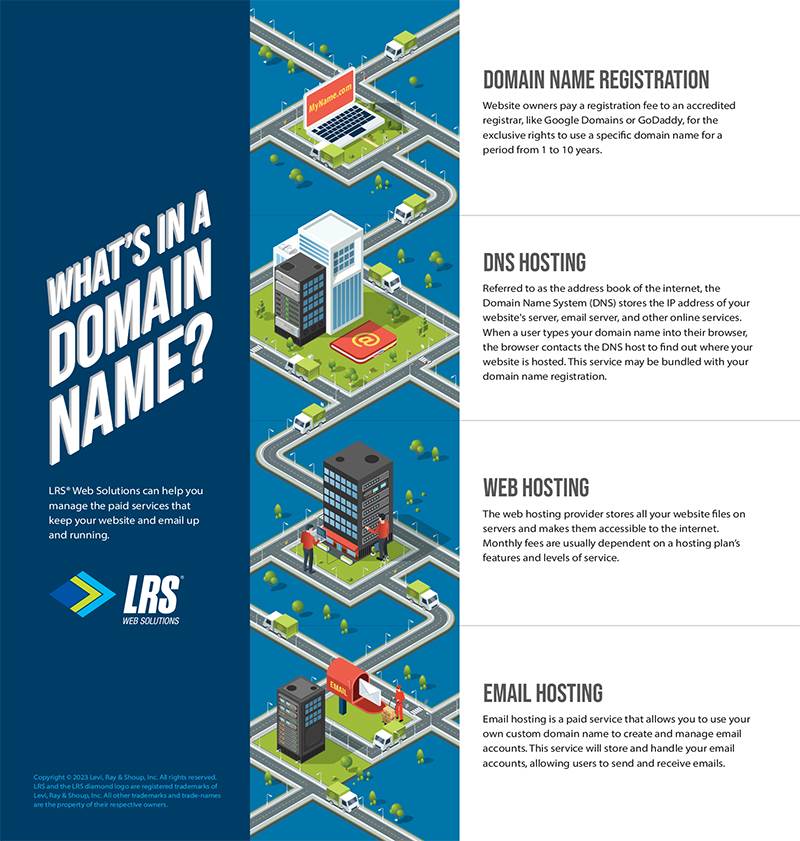
Website development has a lot of jargon, the same as other professions. For non-web developers, website jargon can be confusing. One question we get asked a lot is, what's the difference between terms like "domain registration", "Domain Name Service," "DNS," and "hosting?"
Here's a guide to understanding the technical side of domains:
Domain Name Registration or Registrar
Like registering your car with the secretary of state, domain registration is a declaration of ownership of your domain or url (the address of your website).
You register the domain with the Registrar, the authority that tells the internet where your domain is located or registered.
For example, you may have heard of a company called GoDaddy. GoDaddy is a domain registrar. GoDaddy offers other technical services, but their primary business is domain name registration. Google also has a DNS service, called Google Domains. These two companies are LRS’s preferred vendors for domain registration. DNS services are usually free to help these companies retain customers.
The DNS Registrars use computers called Name Servers. When registering your domain, we tell the name servers to point to your domain's DNS records, aka your website files.
Registrars and domain registrations are very regulated and have expiration dates that are strictly followed. It's very important that you register your domain, or you could lose access to your website.
Registrars and domain registrations are very regulated and have expiration dates that are strictly followed. It's very important that you register your domain, or you could lose access to your website.
Domain Name Service (DNS)
Remember when everyone's address and phone number was in a huge reference book called the phone book? DNS is essentially a phone book of the internet. Instead of your business name, it takes your website's IP address (which is a long series of numbers) and changes it into characters, known as your domain name or URL. Otherwise, whenever we wanted to visit a website we'd have to remember a mix of numbers (199.96.4.11) instead of words: www.lrswebsolutions.com.
You may have heard of the term 'domain stack' before. Generally, the term 'stack' refers to a group of technology frameworks that an application uses to run (LAMP, MEAN, JAM, etc.)
The DNS tells everyone and everything on the internet where your website and email (and any other service) are physically hosted. It "plugs in" your website to the internet. Without this service, you couldn't get your site on the information superhighway.
So when someone enters lrswebsolutions.com into their browser or sends an email to someone here at LRS, the DNS identifies the IP address and connects the web browser or email client to that IP address.
Often, a registrar will include DNS as a service for free with a domain name registration. There are other providers for this service as well.
NS1 is currently LRS’s preferred vendor for DNS because it’s reliable and easy to provide our vendors and clients access to this DNS.
The DNS tells everyone and everything on the internet where your website and email (and any other service) are physically hosted. It "plugs in" your website to the internet. Without this service, you couldn't get your site on the information superhighway.
The Least You Need to Know
In our next post, I'll introduce you to web hosting and email hosting and explain the differences.
Without DNS and hosting services, your business website couldn't be found on the internet. Website development professionals can give you peace of mind to ensure that these steps are taken properly and securely.
I hope this gives you a basic understanding of domain name registration and domain name service, terms and acronyms that may be used during your website redesign. Contact us if you have more questions.
